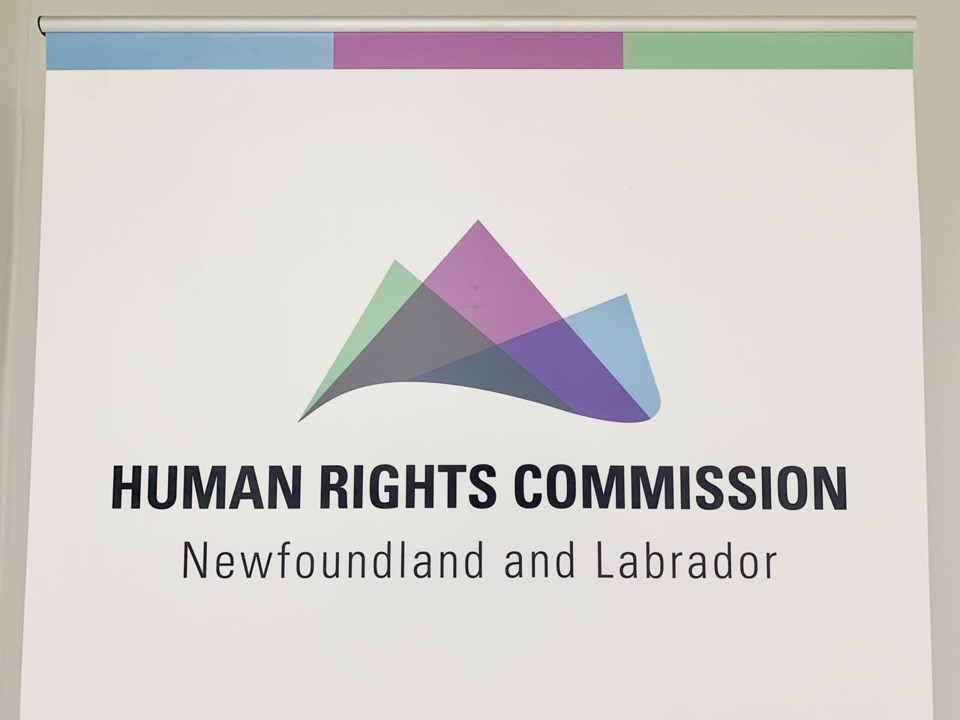ST. JOHN'S, N.L. — The Newfoundland and Labrador Human Rights Commission says people have been knocking on its doors looking for help because they can't find food and housing.
The number of people arriving at the St. John's office in crisis and in need of food and shelter has increased significantly over the past year, even though the commission is not an emergency service provider, said spokesperson Hilary Hennessey. In response, the office announced last week that it could no longer offer walk-in consultations.
"We do see a lot of people come to us in a sort of crisis," Hennessey said. "And that's something that we're having trouble navigating because we're not an emergency service, and we don't really have the human resources to help people in such a timely manner."
And while Canada has signed international treaties declaring food and housing as human rights, enforcing those rights is not part of the mandate of the Newfoundland and Labrador commission — even though everyone there wants to help, she said.
As in the rest of the country, people in Newfoundland and Labrador are struggling to afford food and find affordable places to live. The province's largest food bank — Bridges to Hope in St. John's — has said demand is higher than it's ever been, particularly among people who work full time. And the wait-list for a spot in government-run housing grew by 21 per cent this spring from the year before, jumping from 2,068 people on April 19, 2022, to 2,493 people as of April 28, according to the Newfoundland and Labrador Housing Corporation.
"People need shelter, they're not able to get shelter. People need food, they're not able to afford it," Hennessey said of those arriving at the office looking for help.
Newfoundland and Labrador's Human Rights Act protects people who have been denied housing because of discrimination based on certain prohibited grounds, including race, nationality and gender identity. It doesn't cover those who can't afford food or housing. That means they can't file a case with the commission, whose staff nonetheless do what they can to help, Hennessey said.
Tasha Stansbury, a PhD student at the University of Ottawa's law faculty, says Canada hasn't succeeded in ensuring the rights to food and housing can be enforced.
"There's a law that says everybody has a right to housing, but there's no law that says if people are unhoused, the government must house them," Stansbury said in an interview.
The people knocking on the door of the Newfoundland and Labrador Human Rights Commission are another signal that the federal government needs to do more to live up to its commitment to uphold people's rights to housing and food, Stansbury said.
"COVID-19 caused huge, huge, huge amounts of food and housing insecurity, and we haven't really recovered from that," she said. "The further you get from food and housing security, the harder it is to climb back."
Ottawa's decision in February 2022 to appoint a federal housing advocate — Marie-Josée Houle — was a step forward, she said. But Houle's job is to identify systemic housing issues and lobby the government for change, she doesn't have enforcement power, particularly for individual complaints, Stansbury added.
Houle declared housing conditions a "human rights failure" in Nunatsiavut, the Inuit region of Labrador, after a visit in October 2022.
Nadia Shivji, a lawyer with Dalhousie University's legal aid clinic, said individuals would have more "leeway" to argue for their right to housing if the Canadian Charter of Rights and Freedoms included poverty as a grounds for discrimination.
"As we're seeing more and more people who were previously — quote unquote — middle class, being thrust into that poverty line, particularly in terms of housing security, I think that probably is going to have to change," Shivji said in an interview.
Hennessy emphasized that the office's switch to appointment-only consultations won't deny anyone services. She said the small staff felt they weren't able to provide walk-in clients with the level of trauma-informed care they would like to offer, as they also juggled scheduled appointments and a case backlog dating back to the height of the COVID-19 pandemic.
Not being able to help people takes an emotional toll, she added.
"It's been difficult not being able to support people through a complaint process or pre-complaint process, because we just don't have the jurisdiction to do so."
This report by The Canadian Press was first published July 19, 2023.
Sarah Smellie, The Canadian Press


